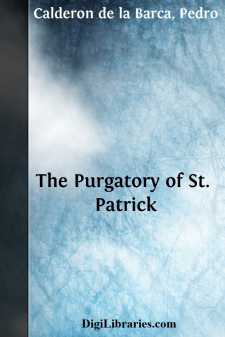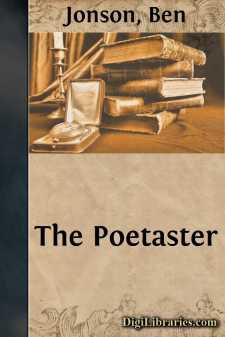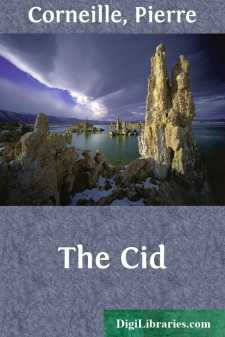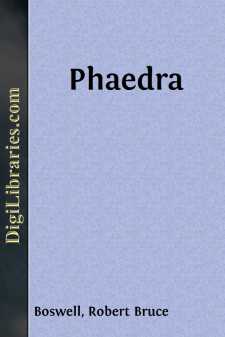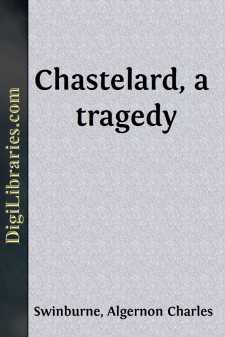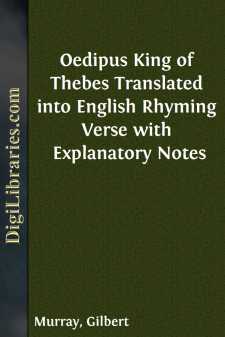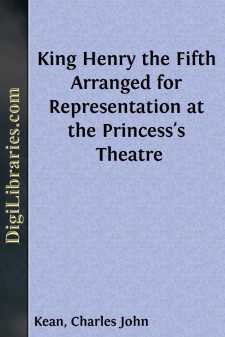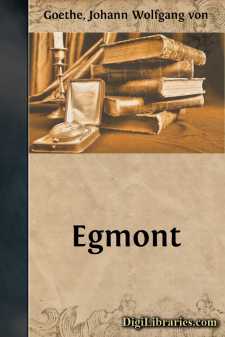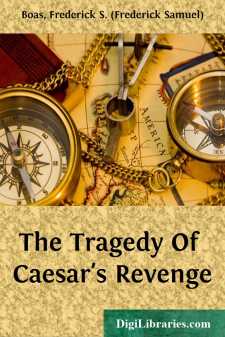Drama
- American 43
- Ancient, Classical & Medieval
- Asian 7
- Caribbean & Latin American 2
- Continental European 50
- English, Irish, Scottish, Welsh 91
- General 105
- Middle Eastern 1
- Religious & Liturgical 1
- Shakespeare 1
Ancient, Classical & Medieval Books
Sort by:
Two of the dramas contained in this volume are the most celebrated of all Calderon's writings. The first, "La Vida es Sueno", has been translated into many languages and performed with success on almost every stage in Europe but that of England. So late as the winter of 1866-7, in a Russian version, it drew crowded houses to the great theatre of Moscow; while a few years earlier, as if to...
more...
by:
Ben Jonson
INTRODUCTION THE greatest of English dramatists except Shakespeare, the first literary dictator and poet-laureate, a writer of verse, prose, satire, and criticism who most potently of all the men of his time affected the subsequent course of English letters: such was Ben Jonson, and as such his strong personality assumes an interest to us almost unparalleled, at least in his age. Ben Jonson came of the...
more...
by:
Pierre Corneille
Act the First. Scene I.—Chimène and Elvira. Chimène. Elvira, have you given me a really true report? Do you conceal nothing that my father has said? Elvira. All my feelings within me are still delighted with it. He esteems Rodrigo as much as you love him; and if I do not misread his mind, he will command you to respond to his passion. Chimène. Tell me then, I beseech you, a second time, what makes...
more...
HUGH HENRY BRACKENRIDGE (1748-1816) The battle of Bunker's Hill was an event which stirred whatever dramatic activity there was in America at the time of the Revolution. Therefore, a play written on the subject should not be omitted from a collection supposed to be representative of the different periods in American history and in American thought. The reader has an interesting comparison to make...
more...
INTRODUCTORY NOTE JEAN BAPTISTE RACINE, the younger contemporary of Corneille, and his rival for supremacy in French classical tragedy, was born at Ferte-Milon, December 21, 1639. He was educated at the College of Beauvais, at the great Jansenist school at Port Royal, and at the College d'Harcourt. He attracted notice by an ode written for the marriage of Louis XIV in 1660, and made his first...
more...
SCENE I.—The Upper Chamber in Holyrood. The four MARIES. MARY BEATON (sings):— 1. Le navire Est a l'eau; Entends rire Ce gros flot Que fait luire Et bruire Le vieux sire Aquilo. 2. Dans l'espace Du grand air Le vent passe Comme un fer; Siffle et sonne, Tombe et tonne, Prend et donne A la mer. 3. Vois, la brise Tourne au...
more...
by:
Gilbert Murray
PREFACE If I have turned aside from Euripides for a moment and attempted a translation of the great stage masterpiece of Sophocles, my excuse must be the fascination of this play, which has thrown its spell on me as on many other translators. Yet I may plead also that as a rule every diligent student of these great works can add something to the discoveries of his predecessors, and I think I have been...
more...
PREFACE. In the selection of my last Shakespearean revival at the Princess’s Theatre, I have been actuated by a desire to present some of the finest poetry of our great dramatic master, interwoven with a subject illustrating a most memorable era in English history. No play appears to be better adapted for this two-fold purpose than that which treats of Shakespeare’s favorite hero, and England’s...
more...
ACT I SCENE I.—Soldiers and Citizens (with cross-bows) Jetter (steps forward, and bends his cross-bow). Soest, Buyck, Ruysum Soest. Come, shoot away, and have done with it! You won't beat me! Three black rings, you never made such a shot in all your life. And so I'm master for this year. Jetter. Master and king to boot; who envies you? You'll have to pay double reckoning; 'tis...
more...
Plays on the subject of Caius Julius are so numerous that some difficulty arises in properly distinguishing the titles. In the case of the piece here reprinted the first title, which is also the head title, suggests a play of Chapman’s, while the running title is the traditional property of William Shakespeare. It seems, therefore, best that it should become known by the name which appears second on...
more...


